News written by Dave Horvath (October, 2007)
Written by Dave Horvath @ 18 Oct 2007 12:57
 It seems like Apple may be showing its belly in submission to the cat and mouse type games its been playing with hackers over the third-party application development for the iPhone. Since its release, Apple has attempted to Block any Homebrew applications on its device by regularly sending updates set to cut off access to its core. They had even gone as far as to release an update that stated if the phone was found with any homebrew applications on it, the user would permanently "brick" their iPhone by grabbing the latest update. This of course infuriated iPhone users and led to several lawsuits.
It seems like Apple may be showing its belly in submission to the cat and mouse type games its been playing with hackers over the third-party application development for the iPhone. Since its release, Apple has attempted to Block any Homebrew applications on its device by regularly sending updates set to cut off access to its core. They had even gone as far as to release an update that stated if the phone was found with any homebrew applications on it, the user would permanently "brick" their iPhone by grabbing the latest update. This of course infuriated iPhone users and led to several lawsuits.
Now, Apple has seen the light and is welcoming third-party application developers to produce working applications that will make the iPhone a better device to own. They stated that in February, they will release the Software Developers Kit (SDK) to the masses and allow them to code applications for the device. The company has stressed however that although they will unlock the device to allow other applications, they are not changing their policies against unlocking the iPhone for use with other carriers besides AT&T.
Read more...
Written by Dave Horvath @ 18 Oct 2007 12:34
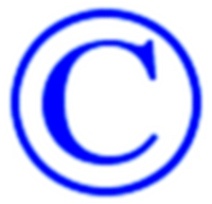 Several of the top media groups have joined forces in an agreement to combat copyright infringement on the Internet. Companies such as Fox, Microsoft, Viacom, MySpace and others have all signed an agreement to better Filter copyrighted material and how its distributed on the web.
Several of the top media groups have joined forces in an agreement to combat copyright infringement on the Internet. Companies such as Fox, Microsoft, Viacom, MySpace and others have all signed an agreement to better Filter copyrighted material and how its distributed on the web.
Absent from the ballot appears to be Google who seems to always be wrapped up in some type of infringement lawsuit. In fact, there currently is a $1 billion suit filed by Viacom for just that. As a public show of saving face, it's quite possible that Google may join this coalition very soon.
Details of the venture as set to be released later today, however the ultimate goal is to collectively assist in Blocking the upload and distribution of copyrighted material to websites and blocking said material before it is able to be consumed by the masses.
One of the biggest offenders, Google and YouTube released new filters on their servers to help combat copyrighted material, however it does not possess the technology to Block it from being uploaded in the first place.
Read more...
Written by Dave Horvath @ 18 Oct 2007 12:21
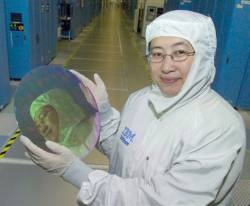 Normally on opposite sides of the fence, especially in the next-generation format war between HD-DVD and Blu-ray, Sony and Toshiba are negotiating an agreement to work together in producing the Cell processor. In this agreement, Sony hopes that their joint venture will assist in bringing costs of production down as well as push towards integration of the powerful Cell processor into other electronic devices.
Normally on opposite sides of the fence, especially in the next-generation format war between HD-DVD and Blu-ray, Sony and Toshiba are negotiating an agreement to work together in producing the Cell processor. In this agreement, Sony hopes that their joint venture will assist in bringing costs of production down as well as push towards integration of the powerful Cell processor into other electronic devices.
Negotiations are still underway however they are expected to fully share responsibility by April of next year. According the preliminary deal, Toshiba will own 60 percent of the shares while the remainder will be split between two remaining Sony companies. Additionally, Sony stated that it will sell its production line plant in Nagasaki to Toshiba which is responsible for producing the Cell processor. Currently under Sony's leadership, the Cell processor is produced using 65-nanometer process technology, but under the direction of Toshiba, the chip will see 45-nanometer processing. This means smaller, cheaper and more energy efficient Cell chips in the future.
Read more...
Written by Dave Horvath @ 18 Oct 2007 12:08
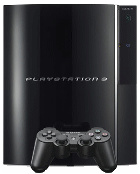 Images, rumors and articles have been thrown around the Internet of the new 40Gb Playstation 3 but no one had been able to confirm what Sony's plan with the new console was, until today. Sony Computer Entertainment America president Jack Tretton has announced today that Sony officially backs the $400 40Gb Playstation 3 for sale in the US.
Images, rumors and articles have been thrown around the Internet of the new 40Gb Playstation 3 but no one had been able to confirm what Sony's plan with the new console was, until today. Sony Computer Entertainment America president Jack Tretton has announced today that Sony officially backs the $400 40Gb Playstation 3 for sale in the US.
The new system will hit the shelves November 2nd, just in time for the holiday season, but that's not all. The 80Gb version of the PS3 will now see a $100 price drop from $600 to $500. This begs to question what happens to the middle-class 60Gb version?
There are a few changes in the 40Gb PS3 that may not sit well with gamers. The omission of two USB ports, down from four and the exclusion of any memory slots for different media types are two lesser cuts to the console. The biggest cost cutting technique just may make gamers cry foul however. The 40Gb PS3 will be the first in the lineup to not be backwards compatible with older Playstation and Playstation 2 titles. "Backward compatibility is a nice secondary consideration, but it's far from the number-one priority, said Tretton. This seems like a strange departure since one of their earlier campaigns when they were about to launch was the fact that they were fully backwards compatible.
Read more...
Written by Dave Horvath @ 16 Oct 2007 3:32
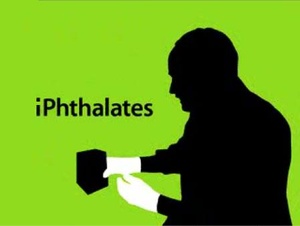 The latest round of lawsuits to hit the Cupertino California based Apple include an interesting angle from studies performed by Greenpeace, the environmental group. Their studies show that the plastics used in Apple's iPhone contain a reproductive toxin and carcinogenic known as phthalates.
The latest round of lawsuits to hit the Cupertino California based Apple include an interesting angle from studies performed by Greenpeace, the environmental group. Their studies show that the plastics used in Apple's iPhone contain a reproductive toxin and carcinogenic known as phthalates.
According to California's Proposition 65, products containing reproductive toxins must either be taken off the market or issued with a warning label stating they can potentially cause cancer. This lawsuit and report stems from studies on the plastics used in the vinyl plastic earphone wiring.
"This isn't a toy. But the overall exposure of the public in general is a problem, especially for children," said Rick Hind, legislative director for Greenpeace's toxics campaign. "It's a reproductive hazard. It could be a kidney hazard."
Apple has 60 days to respond to the lawsuit and has yet to comment on the issues at hand. This lawsuit comes at a time when Apple was just jumping on the environmental bandwagon. Earlier they had faced issues with Trillium Asset Management in which they were persuaded to produce a company wide environmental policy.
Source:
San Jose Mercury
Written by Dave Horvath @ 16 Oct 2007 1:32
 Once the most impressive force in digital file sharing, Napster had taken a hiatus after being sued into oblivion for offering a platform that allowed illegal file sharing to run rampant. Some could proclaim that it was Napster's involvement in the file sharing world that gave birth to the practices that groups like the RIAA employ today. Nevertheless, Napster had decided to come back into the world of digital music with its new legit platform, only to be faced with the brute force market share of Apple's iTunes. These days, Napster hopes to turn all of that around with its new web-based music service.
Once the most impressive force in digital file sharing, Napster had taken a hiatus after being sued into oblivion for offering a platform that allowed illegal file sharing to run rampant. Some could proclaim that it was Napster's involvement in the file sharing world that gave birth to the practices that groups like the RIAA employ today. Nevertheless, Napster had decided to come back into the world of digital music with its new legit platform, only to be faced with the brute force market share of Apple's iTunes. These days, Napster hopes to turn all of that around with its new web-based music service.
This move is intended to attract new paying subscribers to the Napster service by offering a platform that can be accessed on virtually any Internet capable device.
"With this new platform Napster can easily be integrated into consumer electronics devices or integrated into other Web sites such as social networking sites," said Christopher Allen, chief operating officer at Napster.
Napster hopes this will get them in line for more market shares during what's being seen as a turning point as more record labels are making their catalogs available without the hindering Digital Rights Management (DRM) encoding.
Read more...
Written by Dave Horvath @ 16 Oct 2007 12:00
 The most popular social networking site MySpace recently signed a deal with record label Sony BMG that would allow MySpace users access to the label's recording content free of charge for use on their profile pages. The deal is part of an ad-sharing venture which will allow Sony to receive a part of the proceeds from ads generated on user pages that sport music videos and music from the label's library.
The most popular social networking site MySpace recently signed a deal with record label Sony BMG that would allow MySpace users access to the label's recording content free of charge for use on their profile pages. The deal is part of an ad-sharing venture which will allow Sony to receive a part of the proceeds from ads generated on user pages that sport music videos and music from the label's library.
This move will enable MySpace's claimed 70 million users to have full access to Sony BMG's content. Users who were once reprimanded are now granted access to music and music videos to customize their profile pages as they once were. Only this time, legally.
Sony BMG is the second largest record label and can offer a wide variety of tracks to the MySpace community. Its said that once launched, these videos and music files will be made available on the coinciding artist's MySpace profile page.
Source:
Reuters
Written by Dave Horvath @ 15 Oct 2007 5:32
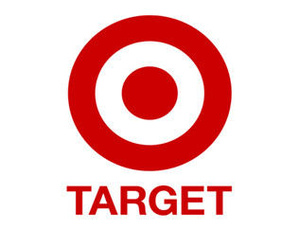 Captured in a few Target stores across the United States are images showing their marketing push towards the Blu-ray format. Reported earlier, Sony had worked a deal where the retail chain would only sell their format, which was later discovered to be false in that Target would be a preferred Blu-Ray store, yet still cater to HD-DVD.
Captured in a few Target stores across the United States are images showing their marketing push towards the Blu-ray format. Reported earlier, Sony had worked a deal where the retail chain would only sell their format, which was later discovered to be false in that Target would be a preferred Blu-Ray store, yet still cater to HD-DVD.
Target has begun installing Blu-Ray only end caps in their retail isles showcasing both the Blu-Ray players and a rather large selection of movie titles. HD-DVD is still represented at the store, however the end caps for that are almost half the size with only a few titles.
Source:
Engadget
Written by Dave Horvath @ 15 Oct 2007 1:15
 Beginning November 13 people subscribing to any number of online digital music retailers will be able to purchase the entire collection of veteran rockers Led Zeppelin.
Beginning November 13 people subscribing to any number of online digital music retailers will be able to purchase the entire collection of veteran rockers Led Zeppelin.
Guitarist Jimmy Page announced that, "We are pleased that the complete Led Zeppelin catalogue will now be available digitally. The addition of the digital option will better enable fans to obtain their music in whichever manner they prefer."
To coincide with their great online release party, the group is also releasing a two CD compilation of their musical career as well as a remix of the 1973 The Song Remains the Same. As if that wasn't enough, they've apparently also reached a deal with Verizon Wireless to provide ringtones and full song downloads to the masses.
Source:
The Register
Written by Dave Horvath @ 09 Oct 2007 2:18
 As many of you already know, February 17, 2009 is the analog blackout day in the United States. On that day, broadcast television will no longer be dished out in analog form, forcing every couch potato to conform to the new digital age. If you don't have a digital television, you're either out of luck or have to purchase a converter box capable of bringing that pesky digital signal back down to the comfortable old analog you know and love. Being the understanding government system that is the United States, they have set aside several billion dollars to issue up to two $40 coupons good towards the purchase of said converters. Well, leave it up to the folks at LG Electronics to remind you that "Life's Good".
As many of you already know, February 17, 2009 is the analog blackout day in the United States. On that day, broadcast television will no longer be dished out in analog form, forcing every couch potato to conform to the new digital age. If you don't have a digital television, you're either out of luck or have to purchase a converter box capable of bringing that pesky digital signal back down to the comfortable old analog you know and love. Being the understanding government system that is the United States, they have set aside several billion dollars to issue up to two $40 coupons good towards the purchase of said converters. Well, leave it up to the folks at LG Electronics to remind you that "Life's Good".
Korean based LG has become the first company to be certified by the National Telecommunications and Information Administration (NTIA) to offer set-top digital to analog converter boxes that are redeemable with the government issued coupons.
"It is an honor for LG Electronics to be the first major company to receive official NTIA certification for digital-to-analog converters," said Michael Ahn, president and CEO, LG Electronics North American Headquarters. "This product is a very important component of the DTV transition assuring that millions of Americans will continue to receive free-over-the-air TV programming after the digital switch in just 18 months. LG Electronics is proud of its leadership role in the development of digital television technologies generally and the converter box specifically."
Read more...
Written by Dave Horvath @ 09 Oct 2007 12:52
 General Manager and Vice President of Yahoo! Music, Ian Rodgers has stated in an open forum that he believes the RIAA and other governing bodies who enforce DRM protection schemes on digital media are inhibiting his consumers from the freedom they deserve. In a presentation that he delivered, he stated that he believed DRM to be dead.
General Manager and Vice President of Yahoo! Music, Ian Rodgers has stated in an open forum that he believes the RIAA and other governing bodies who enforce DRM protection schemes on digital media are inhibiting his consumers from the freedom they deserve. In a presentation that he delivered, he stated that he believed DRM to be dead.
Rodgers has been at the forefront of the music industry back in the days when Napster was king, he was the person in charge of Winamp. He's been with the digital music age longer than most and has seen what kind of an abomination it has become with protection standards hindering consumers from enjoying their rightfully purchased products.
In his presentation, Rodgers states "I'm here to tell you today that I for one am no longer going to fall into this trap. If the licensing labels offer their content to Yahoo! put more barriers in front of the users, I'm not interested. Do what you feel you need to do for your business, I'll be polite, say thank you, and decline to sign. I won't let Yahoo! invest any more money in consumer inconvenience. I will tell Yahoo! to give the money they were going to give me to build awesome media applications to Yahoo! Mail or Answers or some other deserving endeavor. I personally don't have any more time to give and can't bear to see any more money spent on pathetic attempts for control instead of building consumer value. Life's too short. I want to delight consumers, not bum them out."
Read more...
Written by Dave Horvath @ 02 Oct 2007 12:39
 One of the problems facing consumers in the knock down grudge match between HD DVD and Blu-ray comes in the form of compatibility. Most consumers would just soon the industry settle for a format and let them revel in the majestic glow of next-generation media. A few companies have attempted to bring out media players capable of playing both formats, but none have really taken off due to the expense and difficulty of doing so. That soon could change.
One of the problems facing consumers in the knock down grudge match between HD DVD and Blu-ray comes in the form of compatibility. Most consumers would just soon the industry settle for a format and let them revel in the majestic glow of next-generation media. A few companies have attempted to bring out media players capable of playing both formats, but none have really taken off due to the expense and difficulty of doing so. That soon could change.
The folks over at Horizon Semiconductors have unveiled a new chip that decodes full 1080p/60p video streams on the fly for both HD-DVD and Blu-Ray. This means easy hardware compatibility out of a single processor. They also claim that along with decoding next-gen optical disc formats, it is also capable of reading from the tried and true red laser of the DVD era.
Horizon's Hz7220 HD-DVD/Blu-Ray "System-on-a-Chip" supports wide range of features and capabilities including conformance to leading video compression standards such as high-definition 1080/60p profiles of AVC/H.264, VC-1, MPEG-2 and DV/HDV, leading audio compression standards such as DTS-HD, Dolby Digital Plus and Dolby TrueHD, as well as supporting HD-DVD and Blu-Ray HDi and BD-J (BD-Java) interactive technologies.
Read more...
Written by Dave Horvath @ 02 Oct 2007 12:24
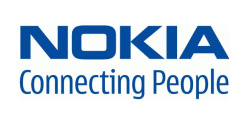 Finnish cellular phone manufacturer Nokia has inked deals with seven major media producers to bring Streaming video content to their cellular phones. The most recent deals were signed with big names such as CNN and Sony Pictures to provide high-end content to their high-end phones.
Finnish cellular phone manufacturer Nokia has inked deals with seven major media producers to bring Streaming video content to their cellular phones. The most recent deals were signed with big names such as CNN and Sony Pictures to provide high-end content to their high-end phones.
"Consumer desire to watch Internet videos on mobile devices is growing all the time and we want to help users discover and access the best content in the simplest way possible," Harri Mannisto, director at Nokia's multimedia unit.
Other video providers on the list include India's IBN news Channel, Jamba, RoofTopComedy, ROK, and Versaly Entertainment. These newly signed deals will begin streaming data to Nokia's N95 model phones in the very near future.
This deal is of course in addition to the existing deals Nokia had signed to stream Internet video content from the likes of Google YouTube and Reuters.
Source:
Reuters
Written by Dave Horvath @ 01 Oct 2007 10:32
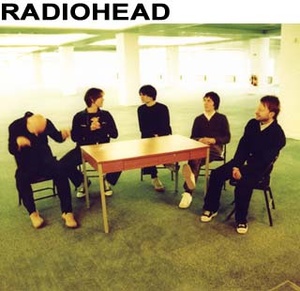 British rock band Radiohead has joined the ranks of such bands as The Beatles in denying Apple's iTunes the sell of their new album entitled "In Rainbows". Instead, the band has decided to let the fans decide how much they'd like to pay for their own music.
British rock band Radiohead has joined the ranks of such bands as The Beatles in denying Apple's iTunes the sell of their new album entitled "In Rainbows". Instead, the band has decided to let the fans decide how much they'd like to pay for their own music.
With a message reading "Its up to you", Radiohead will put their new album, which is set to release 10 October on direct digital download for a price that you are able to name yourself. They have, however, begun accepting pre-orders on their website. As the site will show, you are able to place a bid as low as one pence (2 cents) with a 45 pence charge for using a credit or debit card.
The band does not fear that it will hurt their individual fortunes, but rather poses this as a way to possibly abide illegal downloading by letting the fan pay what they feel is acceptable with the album based on what they feel it deserves.
On the flipside, the band is also accepting orders for a physical copy of the disk at a set price of £40 which includes many extras and fanfare to keep the people happy who would like to truly support the band.
Source:
PC World
Written by Dave Horvath @ 01 Oct 2007 10:12
 Trying to always improve upon existing designs, Sony has decided to officially launch its first Organic Light Emitting Diode (OLED) television screen in Japan on 1 December. Retailing for approximately 200,000 yen (£850 or $725), the new OLED screen will measure a scant 11-inches in size but only 3-mm thick. Sony touts its new OLED screens as being more energy efficient, brighter than current LCD standards and do not require a backlight as current technology does, thereby saving space.
Trying to always improve upon existing designs, Sony has decided to officially launch its first Organic Light Emitting Diode (OLED) television screen in Japan on 1 December. Retailing for approximately 200,000 yen (£850 or $725), the new OLED screen will measure a scant 11-inches in size but only 3-mm thick. Sony touts its new OLED screens as being more energy efficient, brighter than current LCD standards and do not require a backlight as current technology does, thereby saving space.
Although OLED is said to have a better contrast ratio, thereby giving sharper images than traditional LCD, they are more expensive and more difficult to produce in the sizes that are currently accepted as "the norm" with LCD standards.
Sony's president Ryoji Chubachi stated "I want this world's first OLED TV to be the symbol of the revival of Sony's technological prowess. I want this to be the flag under which we charge forward to turn the fortunes around."
Other companies such as Samsung are working on a 40-inch OLED television, but Sony is the first to bring one to market.
"I don't think OLED TVs will replace LCD TVs overnight. But I do believe this is a type of technology with very high potential, something that will come after LCD TVs," said Sony executive deputy president Katsumi Ihara.
Read more...

 It seems like Apple may be showing its belly in submission to the cat and mouse type games its been playing with hackers over the third-party application development for the iPhone. Since its release, Apple has attempted to Block any Homebrew applications on its device by regularly sending updates set to cut off access to its core. They had even gone as far as to release an update that stated if the phone was found with any homebrew applications on it, the user would permanently "brick" their iPhone by grabbing the latest update. This of course infuriated iPhone users and led to several lawsuits.
It seems like Apple may be showing its belly in submission to the cat and mouse type games its been playing with hackers over the third-party application development for the iPhone. Since its release, Apple has attempted to Block any Homebrew applications on its device by regularly sending updates set to cut off access to its core. They had even gone as far as to release an update that stated if the phone was found with any homebrew applications on it, the user would permanently "brick" their iPhone by grabbing the latest update. This of course infuriated iPhone users and led to several lawsuits.

 Several of the top media groups have joined forces in an agreement to combat copyright infringement on the Internet. Companies such as Fox, Microsoft, Viacom, MySpace and others have all signed an agreement to better
Several of the top media groups have joined forces in an agreement to combat copyright infringement on the Internet. Companies such as Fox, Microsoft, Viacom, MySpace and others have all signed an agreement to better  Normally on opposite sides of the fence, especially in the next-generation format war between HD-DVD and
Normally on opposite sides of the fence, especially in the next-generation format war between HD-DVD and  Images, rumors and articles have been thrown around the Internet of the new 40Gb Playstation 3 but no one had been able to confirm what Sony's plan with the new console was, until today. Sony Computer Entertainment America president Jack Tretton has announced today that Sony officially backs the $400 40Gb Playstation 3 for sale in the US.
Images, rumors and articles have been thrown around the Internet of the new 40Gb Playstation 3 but no one had been able to confirm what Sony's plan with the new console was, until today. Sony Computer Entertainment America president Jack Tretton has announced today that Sony officially backs the $400 40Gb Playstation 3 for sale in the US.
 The latest round of lawsuits to hit the Cupertino California based Apple include an interesting angle from studies performed by Greenpeace, the environmental group. Their studies show that the plastics used in Apple's iPhone contain a reproductive toxin and carcinogenic known as phthalates.
The latest round of lawsuits to hit the Cupertino California based Apple include an interesting angle from studies performed by Greenpeace, the environmental group. Their studies show that the plastics used in Apple's iPhone contain a reproductive toxin and carcinogenic known as phthalates.
 Once the most impressive force in digital file sharing, Napster had taken a hiatus after being sued into oblivion for offering a platform that allowed illegal file sharing to run rampant. Some could proclaim that it was Napster's involvement in the file sharing world that gave birth to the practices that groups like the RIAA employ today. Nevertheless, Napster had decided to come back into the world of digital music with its new legit platform, only to be faced with the brute force market share of Apple's iTunes. These days, Napster hopes to turn all of that around with its new web-based music service.
Once the most impressive force in digital file sharing, Napster had taken a hiatus after being sued into oblivion for offering a platform that allowed illegal file sharing to run rampant. Some could proclaim that it was Napster's involvement in the file sharing world that gave birth to the practices that groups like the RIAA employ today. Nevertheless, Napster had decided to come back into the world of digital music with its new legit platform, only to be faced with the brute force market share of Apple's iTunes. These days, Napster hopes to turn all of that around with its new web-based music service.
 The most popular social networking site MySpace recently signed a deal with record label Sony BMG that would allow MySpace users access to the label's recording content free of charge for use on their profile pages. The deal is part of an ad-sharing venture which will allow Sony to receive a part of the proceeds from ads generated on user pages that sport music videos and music from the label's library.
The most popular social networking site MySpace recently signed a deal with record label Sony BMG that would allow MySpace users access to the label's recording content free of charge for use on their profile pages. The deal is part of an ad-sharing venture which will allow Sony to receive a part of the proceeds from ads generated on user pages that sport music videos and music from the label's library.
 Captured in a few Target stores across the United States are images showing their marketing push towards the
Captured in a few Target stores across the United States are images showing their marketing push towards the  Beginning November 13 people subscribing to any number of online digital music retailers will be able to purchase the entire collection of veteran rockers Led Zeppelin.
Beginning November 13 people subscribing to any number of online digital music retailers will be able to purchase the entire collection of veteran rockers Led Zeppelin.
 As many of you already know, February 17, 2009 is the analog blackout day in the United States. On that day, broadcast television will no longer be dished out in analog form, forcing every couch potato to conform to the new digital age. If you don't have a digital television, you're either out of luck or have to purchase a converter box capable of bringing that pesky digital signal back down to the comfortable old analog you know and love. Being the understanding government system that is the United States, they have set aside several billion dollars to issue up to two $40 coupons good towards the purchase of said converters. Well, leave it up to the folks at LG Electronics to remind you that "Life's Good".
As many of you already know, February 17, 2009 is the analog blackout day in the United States. On that day, broadcast television will no longer be dished out in analog form, forcing every couch potato to conform to the new digital age. If you don't have a digital television, you're either out of luck or have to purchase a converter box capable of bringing that pesky digital signal back down to the comfortable old analog you know and love. Being the understanding government system that is the United States, they have set aside several billion dollars to issue up to two $40 coupons good towards the purchase of said converters. Well, leave it up to the folks at LG Electronics to remind you that "Life's Good".
 General Manager and Vice President of Yahoo! Music, Ian Rodgers has stated in an open forum that he believes the RIAA and other governing bodies who enforce
General Manager and Vice President of Yahoo! Music, Ian Rodgers has stated in an open forum that he believes the RIAA and other governing bodies who enforce  One of the problems facing consumers in the knock down grudge match between
One of the problems facing consumers in the knock down grudge match between  Finnish cellular phone manufacturer Nokia has inked deals with seven major media producers to bring
Finnish cellular phone manufacturer Nokia has inked deals with seven major media producers to bring  British rock band Radiohead has joined the ranks of such bands as The Beatles in denying Apple's iTunes the sell of their new album entitled "In Rainbows". Instead, the band has decided to let the fans decide how much they'd like to pay for their own music.
British rock band Radiohead has joined the ranks of such bands as The Beatles in denying Apple's iTunes the sell of their new album entitled "In Rainbows". Instead, the band has decided to let the fans decide how much they'd like to pay for their own music.
 Trying to always improve upon existing designs, Sony has decided to officially launch its first Organic Light Emitting Diode (OLED) television screen in Japan on 1 December. Retailing for approximately 200,000 yen (£850 or $725), the new OLED screen will measure a scant 11-inches in size but only 3-mm thick. Sony touts its new OLED screens as being more energy efficient, brighter than current LCD standards and do not require a backlight as current technology does, thereby saving space.
Trying to always improve upon existing designs, Sony has decided to officially launch its first Organic Light Emitting Diode (OLED) television screen in Japan on 1 December. Retailing for approximately 200,000 yen (£850 or $725), the new OLED screen will measure a scant 11-inches in size but only 3-mm thick. Sony touts its new OLED screens as being more energy efficient, brighter than current LCD standards and do not require a backlight as current technology does, thereby saving space.








